Horror: The Ugly Duckling of Cinema
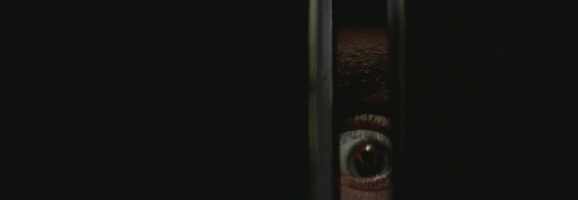
Horror films have been a part of my life since I first became interested in cinema. Having been squeamish throughout my childhood, I finally took the plunge in my early teens and became hooked instantly. For the past six years or so my taste has expanded but I still have a soft spot for the grisly pleasures of the subversive. Some would argue that there are a number of films from this genre that are openly regarded as classics by scholars and critics but I am still convinced that horror remains a niche cult phenomenon that is often overlooked and viewed differently to more ‘worthy’ material. Even the film department at my university does not consider this genre an important area of study in its own right, only ever using these films in relation to other areas of study, such as Japanese Cinema or Postmodernism.
A great place to start is by looking at the so-called classics and their place in relation to the genre as a whole. I have found it is possible to place these more accepted films into two categories; Revolutionary Horror and Prestige Horror:
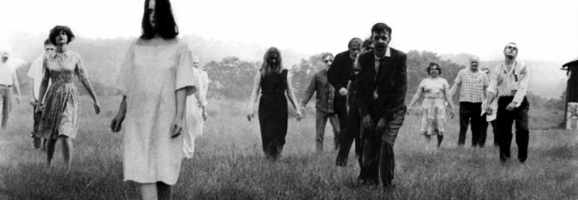
Revolutionary Horror
This category consists of ground-breaking films that simply cannot be disregarded by film historians or critics. These are often of low quality as they do little more than showcase a particular innovative element. For example, Night of the Living Dead is a landmark of American independent cinema as well as a powerful critique of society but in terms of quality it is actually a very average film, especially by today’s standards. Similar could be said for The Last House on the Left, and Tod Browning’s Dracula; which is an incredibly dated early sound film but a landmark in the history of Universal Studios and cult fandom.
Other examples include: Halloween, The Blair Witch Project, The Texas Chainsaw Massacre, Ring.
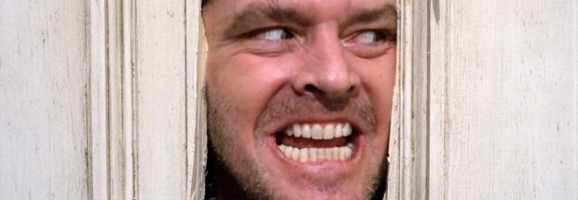
Prestige Horror
The more respected horror films often earn their status because of the names attached to the projects. For example, both Psycho (Alfred Hitchcock) and The Shining (Stanley Kubrick) were made by directors who already had a great amount of status due to their work in other genres. Although it is worth noting that neither of these films were met with immediate critical success and have both gained in popularity as the directors’ canons have been posthumously revised. Gothic Horror (including the Universal classics, The Innocents and The Haunting) also fits into this category as it is a continuation of a literary tradition with a pre-existing sense of cultural worthiness. I often feel that some of the classics are seen as being of substance simply because of contextual factors rather than their content.
Other examples: Eyes Without A Face, Peeping Tom, The Phantom of the Opera (1925).
Both of these categories give the impression that there is a space for horror in film criticism. I would argue, however, that three fundamental problems still remain:
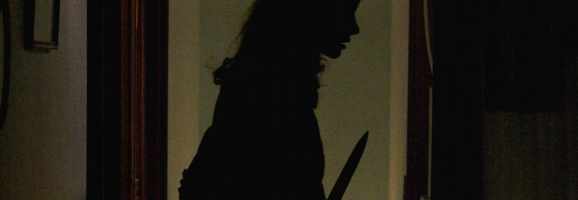
Overlooked Sub-genres
The most seriously overlooked sub-genre is what I like to call ‘Pure Horror’. This consists of films whose only real function is to scare or shock its audience. Many of the more critically accepted horrors are multi-genre films (such as Alien, Don’t Look Now, and The Wicker Man) often combining drama or Sci-Fi with horror and are thus not pure horror films. Ti West is a great example of a pure horror filmmaker as his films are all constructed around horror. In his films, subtext and complex character development take a back seat in favour of a steady climb towards a number a great scares. The main issue here is that these films are genre films and thus follow a basic formula for a specific purpose. Critics often find such films to be lacking in artistic value precisely for this reason and do not attempt to look at the multitude of layers that are actually at work.
Examples include: The House of the Devil, The Innkeepers, The Borderlands, Pin, The Amityville Horror, Child’s Play, Suspiria, Candyman, Session 9, The Eye (2002).
‘Body Horror’ and ‘Torture Porn’ are equally overlooked subgenres. Torture films in particular can be easily dismissed because of their subversive content. It is certainly not uncommon for these films to be met with distain as their exploitative foundations means they can never fully justify their content. This automatically pushes them into the realm of cult cinema, even dating back to the silent era with the subversive films of Lon Chaney which were met with equal distain by audiences and were the first real underground films. The Phantom of the Opera is the only one with any real prestige but, as suggested earlier, this comes from its respected source material.
Other Examples: Excision, Braindead, The Fly, Night of the Creeps, Antiviral, The Penalty, The Unknown, Maniac, Hostel, I Spit on Your Grave, Martyrs, Wolf Creek, The Human Centipede, Inside, Audition, Tokyo Gore Police, Switchblade Romance.
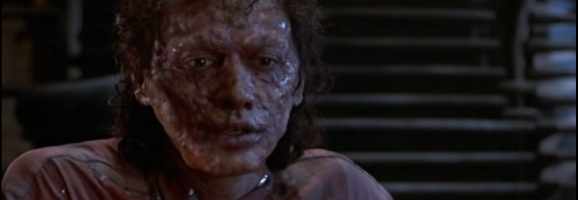
The Academy
I’m not an avid follower of The Academy Awards but their significance in the world of film is undeniable as is their frequent lack of recognition for horror. The majority of awards given to these films have been for aesthetic reasons such as best make-up effects for The Fly and An American Werewolf in London or costume for Sleepy Hollow and Bram Stoker’s Dracula. Despite winning Best Picture in 1992, I would argue that The Silence of the Lambs is a multi-genre film, closer to a thriller than horror, as is Misery which claimed Best Actress in 1991. The only real spanner in the works is The Exorcist which was the first horror to be nominated for Best Picture and was the winner of Best Sound, Best Screenplay, and a number of acting awards.
The Exorcist is a particularly interesting film in relation to my argument as I think it is possibly the only pure horror film to be fully embraced by critics. It received mixed reviews upon its release but has gained in reputation particularly as it has been singled out by a few notable critics. Roger Ebert, whilst being somewhat shocked by its content, openly praised the film. Mark Kermode is the most important critic in relation to The Exorcist as to this day he still claims it is the greatest film ever made. I think Kermode is one of the only well-known critics working today who really respects the horror genre for what it is. It is also perhaps because of him that critics still openly express their regard for this film.
The list of previous Best Picture winners is really a joke in itself. The painfully dull Out of Africa claimed victory in the year Re-Animator and The Return of the Living Dead were released; two fabulously fun horrors that have never won any awards outside of niche film festivals. Just as the melodramatic schmaltz-fest Terms of Endearment picked up the award the year that Cronenberg’s masterpiece Videodrome was released. Despite being a genre film, Videodrome is a much more memorable and individual film as it combines an unusual storyline with spectacular make-up effects. Its dismissal acts as proof that the Academy are uncomfortable with awarding unusual or audience-dividing films; as can also be seen through their avoidance of awarding a drama like Brokeback Mountain Best Picture because of its controversial theme.
Horror is often a great way into World Cinema but this does little to help the genre as foreign films are massively disregarded by the Academy. It may seem absurd to suggest that these films are Oscar-worthy, but I think it highlights the key difference between enjoying films and appreciating them.

Top Film Polls
As a film fan, polls have been essential to my viewing decisions over the last few years and my research has revealed some serious issues at the basis of the critics’ compilations. There are plenty of ‘Greatest Horror Movies’ polls out there which allows critics to separate these films from their ‘actual’ greatest. For example, classics like The Omen, The Evil Dead, Onibaba, and A Tale of Two Sisters are completely omitted from every major critics’ poll. Sight & Sound, The Radio Times, and Total Film magazine name the usuals: Psycho, The Shining, The Exorcist, Don’t Look Now. The Telegraph even chooses to split their Greatest Films list into different genres and the individual critics’ polls completely avoid horror apart from the inclusion of The Shining by Tim Robey. Psycho is a frequently high-ranking horror in a number of film polls but, from what I can gather, never breaks into the top 20 of any list.
One frequent omission is John Carpenter’s The Thing. It is considered to be a horror classic by today’s standards but was left out by Total Film, Sight & Sound, The Telegraph, and The Radio Times. Empire managed to squeeze it into 289th place on their Top 500 but this is hardly a worthy position for a film I personally consider to be a masterpiece in relation to all of cinema, not just within its genre. The problem here is that The Thing is simply a good horror film but nothing more in an historical sense. Something particularly interesting in relation to this is the inclusion of this film on the IMDb users’ Top 250 and the Total Film online users’ 100 Favourite Movies list. I think this ties in nicely with Jon Lisi’s Films We Watch Versus Films We Study article where he attempts to distinguish between films that audiences enjoy and films that have significance. This is at the heart of the problem for the horror genre – it seems to be rife with films for enjoyment and low on films with significance. As a result of this, people are much more dismissive of these films when a particular element isn’t to their taste and less willing to praise individual elements.
Mark Kermode’s top ten films is the most horror-friendly list I have seen; with the inclusion of four horror films. He was, however, one of only two critics to name The Exorcist as one of the greatest in the 2012 Sight & Sound poll. This highlights the fact that, despite the positivity many classic horrors receive, when it comes to the actual ‘greatest’ films they are frequently dismissed.
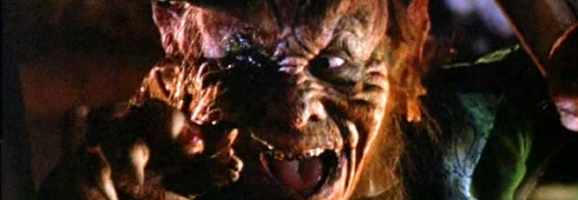
You might assume from my argument that my personal favourite films would be packed with horror but in actuality I suffer from the exact same problem as these critics. I enjoy these films more than any other genre as a whole but I also find that when it comes to the actual greatest it is much easier to overlook these in favour of more ‘artistically worthy’ films. It seems we have all been conditioned to automatically show appreciation for certain types of art films (such as the work of Yasujirô Ozu, Federico Fellini, and Orson Welles) and less for others.
Another problem I am often faced with is trying to work out which specific horror films are my actual favourites as the genre is so diverse there really are too many to choose from. My real argument is that they are a separate entity, a cult phenomenon, whose pleasure is precisely in the fact that they still have an underground status. There is also a sense of achievement in viewing something that many others can’t bring themselves to watch, this is exactly what many horror fans thrive on.
As well as this it is one of the only genres, in my opinion, that can be enjoyable even if the film is absolutely terrible. A bad drama can be painful to sit through but Troll 2, Leprechaun, and Basket Case are surprisingly enjoyable. Outside of narrative pleasure, horror films have the ability to entertain on an aesthetic or comedic level. A bad drama will often take itself too seriously which can be uncomfortable to sit through whereas a film like Leprechaun revels in its own absurdity. This is not to say some don’t fall flat, I do find Poltergeist and Pet Sematary to be particularly unenjoyable but my lack of enjoyment leads more to me simply forgetting these than actually being offended by their dullness.
There is hope for the future, especially with critics like Kermode keeping the interest alive and websites like Netflix making available some of the more obscure cult horror films.
The fact is, horror is great and you’d be a fool to avoid it, even if some critics want you to forget it exists.
Some other recommendations: Black Christmas, Phenomena, Tesis, Invasion of the Body Snatchers (1978), Carnival of Souls, Cemetery Man, Cure, Scanners, The Tenant, Eraserhead, Kill List, The Jacket, Sinister, Brain Damage, Ginger Snaps, Evil Dead II.
What do you think? Leave a comment.











Argento’s Suspiria. Followed by the Shining (the book will scare you even more!) but Kubrick’s style, the casting, cinematography, and musical score is the perfect horror storm. Anything horror/thriller that came out in the late 60’s-70’s has an inexplicable unease and fits perfectly with the time period. I am not an easy girl to scare- and am wanting something to rival those past gems.
The Exorcist, as well if you’re talking this era!
Interesting article! I personally seldom watch horror movies because I do have greater respect for films that are more artistically well-crafted and executed, but I do occasionally find horror films that maintain a good balance between scaring the hell out an audience while being well-crafted in terms of consistently threading thought-provoking themes and impressive cinematography. Though more often than not I fall under the category of people who watch horror occasionally just for the sake of experiencing a thrill
10.Let the Right One In (2008) – greatest vampire movie ever
9.Shutter (2004) – asian horror at its finest
8.The Descent (2005) – seriously f**kin suspenseful
7.Dawn of the Dead (2004) – great remake, and that’s rare
6.[Rec] (2007) – one of the best found-footage flicks
5.Quarantine (2008) – Jennifer Carpenter aside, I thought this version was better
4.Alien (1979) – James Cameron should quit Avatar and make more Aliens
3.Evil Dead II (1987) – the trailer for the new remake looks sick
2.Trick ‘r Treat (2007) – my fave Halloween flick that actually centers on Halloween
1.Zombieland (2009) – “I’m not great at farewells, so, uh, that’ll do, pig.”
10. Nightmare on Elm Street- Suspense, terror, agony, devastation, etc = horror
09. Halloween- Halloween the movie MADE Halloween
08. Silence of the Lambs- More like silence of the me screaming!
07. The Ring- Just a plain devastating movie. I’d never watch it again, but that’s the beauty of it.
06. The Shining- Uh, let me get s’more pants before I watch this with ya buddy.
05. The Texas Chainsaw Massacre- this is scary as you know what because people break down on the side of the road all the freaking time so often.
04. Poltergeist- Don’t even get the slightest hint of a feeling of watching this
03. Psycho- I urge tough people to sit in a small house alone and watch this on an older tv screen. I DARE you
02. The Last Exorcist- If you haven’t seen this movie, thank God and get on with your life my friend.
01. The Exorcist- Don’t ever EVER watch this movie. Horror fans, tough guys/girls, everyone, do NOT watch this.
This is a great list, actually.
Couple nitpicks, “Alien” was Ridley Scott, “Aliens” was James Cameron. Throw Scott’s Prometheus into that statement, though, and you’re absolutely right ;).
2013’s “Evil Dead” is a re-imagining/soft sequel to Raimi’s original “The Evil Dead”, rather than the soft-reboot “Evil Dead 2”. The former was intended as a much more straight-forward horror, without the intentional slapstick, and it’s that tone Fede Alvarez’s “Evil Dead” is going for. Folks looking for the hijinks of “Evil Dead 2” and “Army of Darkness” are going to be very, very upset.
Lovely article and very interesting list of titles. A few of these I know and appreciate; a few I know by reputation and I’ve been meaning to see; and thanks for bringing some others to my attention.
I am watching Nomad now and it is awesome,. Another underrated classic is Blackout, this movie about a guy who gets in a car accident and loses his memory, but before he had the accident, he murdered his family. And the nurse falls in love with him. Then he gets his memories back..
Being a person who seldom, if ever, watches horror films, I appreciated this article simply because most of the topics are brand new to me. Certain things that you said make a lot of sense to me. I often say I don’t particularly care for horror films, yet they always prove to grip my attention whenever I do stumble upon watching one.
I do feel, however, that if your purpose here is to change the way society sees and thinks about horror films, perhaps you should write a second article- one that is far less biased and explores all film genres/sub-genres. I am not sure that this was your purpose though. As you said, part of the enjoyment of horror films is that they are mostly an underground genre.
Anyways, I found your article very interesting and I appreciate reading a writer’s work when it’s on a topic they are very passionate about. Great job
Thanks for the feedback, much appreciated 🙂
I’d recommend:
The Orphanage – A chilling and beautifully shot Spanish horror film with a nice twist ending.
The Ring (US version is actually better than the Japanese original) – I’m sure most of you know about this film. A relatively gore-free horror with bags of creepy atmosphere and a constant sense of dread, it’s is a very good film.
Paranormal Activity – Many hate it, many love it, I am in the latter group.
The House of the Devil – A homage to old-skool horror films that focuses on clever camera angles and buildup of tension over blood and guts being spilled all over the screen.
High Tension (Switchblade Romance) – Yes, it has a BIG plot hole, but it will also keep you glued to the screen, heart pumping, from start to finish.
Trick ‘r’ Treat – How this film went direct-to-DVD I will never know. This anthology by Michael Dougherty is an absolute gem of a horror film – confidently directed, well acted with a hugely entertaining set of intertwining storylines, Trick ‘r’ Treat is one of the most fun-to-watch horror films of the noughties. Not actually that scary, but a thoroughly enjoyable, and highly recommended.
Trick ‘r’ Treat is a personal favorite of mine. To me this is the perfect melting pot of horror movies. It satisfies the sub-genres of serial killers, slashers, gore, erotica, scary legends, haunting, and demons. It understood that gore was not the only way to make a movie scary, it brought out the suspense and creepy atmosphere that a horror movie should have.
I agree that it was not scary, like there were no monsters jumping out yelling BOO but the movie did leave an unsettling feeling in the pit of your stomach. It exploited monsters and zombies and all the other ghosts and goblins that make for a good halloween movie.
Long time, hardcore horror aficionado here.
In reference to High Tension/Haute Tension/Switchblade Romance, it’s in the sub genre known as “New French Extreme”. Another even more noteworthy pair of entries is Martyrs and Inside/L’Interior. Neither are movies you want to watch on a full stomach, or with a low tolerance for the terrible. Seriously, these are not fun movies. Not even a little bit of levity in either. Once the horror starts, it does not let up.
In regards to the “superiority” of gore-less horror, that’s suspect at best. Yes, Robert Wise’s “The Haunting” has two of the most genuinely terrifying scenes put to screen without a single actual visual effect, let alone gore, but that doesn’t mean that gore is a cop-out. Used properly – again, see the New French Extreme movies, Trick ‘r Treat, and American Werewolf in London for good examples – it elevates the narrative and works to push the limits of what the audience can handle. That’s at the core of what horror is supposed to do. It pushes our most primal buttons for revulsion and fear. It’s *supposed* to make the viewer uncomfortable. Gore can be gratuitous, if that’s the purpose of the film (most slashers, monster features, and general “roller coaster” style films), but it can also be a key element.
I’ll probably catch hell for suggesting these, but I highly recommend Tom Six’s “Human Centipede” films and Srdjan Spasojevic’s “A Serbian Film”. Don’t get me wrong, these are horrid, painful films, but all are incredibly well produced, competently written, amazingly acted, and perfectly effective.
The Human Centipede villains especially are incredibly compelling (Dieter Laser and Laurence R. Harvey, respectively). The gore and gross-outs abound, to an “I triple-dog-dare you” extent, but just add to the overall experience.
A Serbian Film is a more difficult recommendation. There are “rapey” films (Last House on the Left, Irreversible), and then there’s A Serbian Film. It’s incredibly difficult to watch, but even it’s most infamous scene (“baby porn”) is done in a way that showcases the director’s technical eye, and primarily with sound and with the mother’s reaction being honestly the most disturbing part of the scene. It’s a truly brutal film, but one that should not be dismissed.
I’m not going to go on a rant about “real horror fans”, but there is a divide between the opinions of people invested in the genre and those who are not. Listening to the latter will mostly net you recommendations of the more mainstream, often pedestrian titles. These are often truly great films – some of the absolute best of the genre – but you’ll also miss out on a lot of lesser known, more hardcore offerings.
Also, check out literally anything from Troma films.
A great example of a film wherein over-the-top, ostensibly gratuitous gore is more or less the entire point of the film is Peter Jackson’s Dead Alive (Braindead outside North America). Even as a fan of hardcore horror, it took me years before I could watch this film without getting nauseous. It’s ridiculously, stomach-churning violent. It’s also very well done and intensely funny. The gore is done in an almost Keatonesque, slapstick mode. The fact that it’s so completely over-the-top is a big part of the comedy. The audience is frequently forced to say (often outloud) “are you **** kidding me?!”
A short film example is the recent “Brutal Relax” (which features two of the most ridiculous weapons and kills I’ve ever seen), and like Dead Alive, it brings up the question that, if the entire crux of the movie’s appeal and core of the comedy is extreme gore, is the gore actually gratuitous?
I think the thing about horror that makes it difficult to connect with audiences (especially now) is that the genre is judged mostly just on how effective it is at frightening people. Most casual viewers will only deem a horror movie good if it effectively scares them. Because of this mentality, if horror film attempts to showcase an overarching theme/themes, they will simply get overlooked because that’s not what audiences are looking out for.
I agree that universities seem to overlook genre. In my film classes at my smaller college, we discuss genre briefly, but never seem to focus on it, which is disappointing. I’m wondering where you found these genres, as I have never really heard of Prestige or Revolutionary Horror as a genre, just more a descriptions for individual films, particularly in the case of Revolutionary.
They are just terms I came up with myself to help explain the two main categories 🙂
Just watched Rec and Rec 2.. amazing. So, so good.
Real Horror movies: The Exorcist, The Changeling, The Amity Ville Horror (original), Black Christmas (the original). Directors now a days do not know how to make horror movies, all they know how to make is overly graphic, bloody disturbing movies because they lack the skills to scare you without it.
The Changeling is a great example! I’ve never though of it as a horror movie, really, but it absolutely is. The whole narrative is just terrifying, haha.
SHUTTER is really scary… I remember, I can’t even go alone to the restroom to pee for a week, I always had my mother accompanying me.
I don’t like all of those movies listed, but I can’t argue that many of these highly influenced the horror genre.
Horror movies have always been a favorite of mine so I’m glad to see an article defending the genre. I strayed away from more of the gore movies but the psychological horror is still really captivating.
I love old, low budget horror films! I was looking at the Fangoria Frightfest series and I was excited about the movies they have after watching the trailers! I need to check some of them out and maybe get a couple of these oldies as well
A tip for fledgling horror movie fans; It’s crucial to suspend disbelief when watching many horrors. This may sound obvious, as many horrors are works of pure fantasy, but don’t spoil the film for yourself because, for example, a character hasn’t reacted to a situation, the way you (hypothetically) would. I’ve had the misfortune to spend time in prison and I’ve seen people react in the most bizarre ways to ‘horrifying’ incidents. Also don’t go to the cinema with your date to see a film you’ve heard is ‘the scariest thing ever’, with the mindset that you’ll never be scared by the movie. You’ll spoil the experience for yourself (I call it ‘The Blair Witch effect’) and your date won’t think you’re any tougher because you’re laughing at scenes whilst she’s scared sh*tless!!
Excellent article.
I love horror and I can feel your passion for the genre in your writing. I am hesitant to group together movies that intend to “scare or shock” you. I find shock and being scared as two very different emotional reactions.
I also wonder where you would fit Slasher films into the horror genre.
I agree, the genre as a whole has lost it’s place in the world. I think one reason for that is the cheap thrills and badly made gore that the film industry has been falling into lately. They’re gettin’ lazy and it’s giving the horror genre a bad rap!
I’d add ‘What Lies Beneath’ to this. It’s the only horror movie I can remember jumping to in the theater and feeling genuinely nervous/frightened by.
Great post! In fact I’ve been working off it for a while now to catch up on my noughties horror – a decade which, unfortunately, came to be defined by the likes of Eli Roth and Wes Craven re-making his own movies.
Great read. I like the way you categorize horror movies. They generally aren’t my favorite, but certainly deserve a seat at the table when it comes to serious film discussion.
I think critics of the horror genre discourage moviegoers from watching horror films because of all the crappy ones that have come out, and all the silly and unnecessary remakes and sequels. The Hollywood system doesn’t know how to control itself when it comes to money, and because of this it doesn’t know how to treat the horror genre with patience admiration. To most people, horror means shock scares and grisly murders. There’s so much more to it.
is saw considered a horror film, if so i’m curious what category it falls under?
I think I’d class the first Saw film as a thriller but the sequels all fall under the ‘torture porn’ genre.
Very interesting article. The history of horror cinema is very long and extensive producing many classics and iconic films. The Universal monster films of the 1930s and 1940s set the standard for what a monster movie is and does. Hammer Studios in the 1960 and 70s redefined the cinematic treatment of the genre and developed the paradigm for blood soaked contemporary horror films.
Although I do enjoy the good ol’ American slasher/thriller and am an American, I have to say most American horror movies DO suck. Best horror movies are usually foreign. Like A Tale of Two Sisters and I saw the devil which are Korean, or Los Ojos de Julia (Julia’s Eyes) a Spanish movie.
I agree that A Tale of Two Sisters and I Saw the Devil are masterpieces but I would argue that Julia’s Eyes is a horror film that is highly regarded simply because it is foreign. I personally find it to be below average and unnecessarily melodramatic. I also think the three films you have named are multi-genre films which is perhaps why you like them as you don’t like pure horror.
Have you watched The Uninvited Guest by the same director/writer as Julia’s Eyes? Not a horror piece but quite interesting nonetheless.
While I agree that horror as a genre is to be respected and has well-produced classics of its own, I don’t think anyone would “be a fool to avoid it.” Sure, there are many decent horror films and a lot of people enjoy them — as in any genre. To watch or not watch horror films is a personal choice, and is often based on each viewer’s own comfort-level, especially if someone is predisposed to anxiety or paranoia.
This is a very insightful article, Alice. As a life-long fan of horror, I see similar attitudes in regard to horror fiction. While some prestige names (Stephen King, Peter Straub, Clive Barker) have transcended the genre, horror fiction is still often short-changed by academia and mainstream critics. And it is not unusual for a “prestige” title to be annexed by the more acceptable gothic designation.
Again, thank you for this insightful and very interesting article.
Jesse Munoz
oh my gosh, the descent was such a scary movie…however there was a sequel made that wrecked the first movie. they should have just left it at the first movie.
Hi Alice. This article resonated with me well because I am a happily-admitted horror buff. Your point is sound, in that horror is the most underrated, overlooked, and easily forgotten major genre existing today. I agree that critics often don’t typically take an interest in this genre. I just recently had an article published that explores how critics and regular moviegoers see film differently, and I used the horror genre to support many of my points. I only mention this because I feel our articles compliment each other well. If you are interested, here is the article: https://the-artifice.com/movie-critics-and-moviegoers-view-films-differently/
I really did enjoy your article, and your support of the horror genre. Cheers!
Thanks. I like how you have used the genre in your argument as it works well to back up your points and I appreciate the feedback.
This is a really relatable article! I was the same way when I was younger. I avoided scary movies like the plague. i still remember the first scary movie I ran out on (which I believe is titled Godsend). It wasn’t until my mom introduced me to the type of horror she thrives on that I understood the appeal. My mother is a hardcore fan of the Saw movies because she can’t get enough of the psychological thrill attached to it. Once she brought me into the world of psychological thrill I would never turn back. There’s just something about the way it twists your mind in a million places then throws something totally unsuspected in your face. I also have become pretty intrigued by serial killers because I like to try to see inside the mind of the monster and what makes them do what they do. As far as fake film horror goes I just love being on the edge of my seat at every second, or screaming at the stupid blonde girl with a huge rack to “NOT GO IN THERE!”
I often find that horror is often an interesting genre for the young, up-and-coming filmmaker. It gives them good training on how to receive an actual physical reaction from the audience: fear. This is invaluable. Sadly, because fear (like comedy in a lot of ways) is so subjective, it is often not as well respected, and those young up-and-comers often go on to do more “serious” work.
If you can handle subtitles, just about any of Guillermo del Toro’s Spanish horror films are great. Not overtly violent, but genuinely creepy. Pan’s Labyrinth is number one must watch of his.